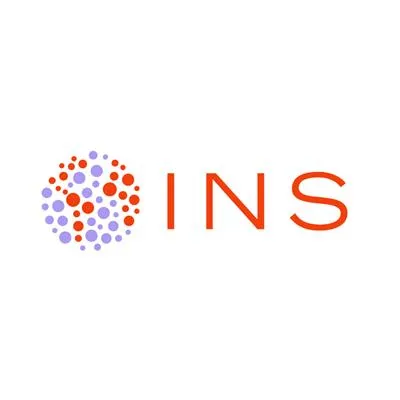
Alright, y'all,
I've been working my way through the food-based blockchain offerings. Here is my writeup on Foodcoin and here is my writeup on eHarvest Hub. Ripe.io never emailed me back with their whitepaper so I'll have to do a little digging on them.
Continuing with the theme, here are my thoughts on INS Ecosystem.
Again, my background is that I have a little experience starting a pickle business and dealing with the government that way. I've also spent plenty of time working in restaurants and beyond that I've done a ton of reading into 19th and 20th Century history and in this case particularly the Progressive Era of US politics in which the state became more dangerous in the name of "safety" and more corrupt in the name of "exposing corruption". @corbettreport has a lot to say on the topic if you're interested.
So I am very excited about the potential for blockchain technology to eliminate a lot of the parasitism of modern totalitarian governments and free up the supply chain to the inestimable benefit of producer and consumer alike. Unfortunately none of these coin offerings really address the root of the problem, which in my opinion is government over-regulation of and in many cases bold-faced lies about our food supply. INS offers a somewhat interesting twist on the narrative by putting the blame on retailers. It even singles out poor Procter & Gamble as a victim of the evil Walmart. (p. 6) Actually, INS appears to have attracted a ton of interest from the corporate world, if you're into that sort of thing. Most of the names are European: Borjomi, Reckitt Benckiser, Storteboom. I'd never heard of any of them, but if anyone would like to share some links I would be happy to look into these companies further.
Basically INS is trying to build an online grocery store. I think this is a good idea, especially in comparison to the other two coins I've reviewed which seem to be trying to do far too much. They do have some good conventional ideas regarding co-branding on packaging and promotional material. They also have some reasonable ideas using the blockchain (ERC20 for the ICO, to be replaced with a native one around time of launch) to connect independent fulfillment centers and shipping. Getting someone else to do your work for you is always a good idea in my opinion!
The big problem for me is that I don't see where the token comes in. It seems from the whitepaper that they are going to require suppliers, but not end consumers, to transact in the native token. As I've mentioned in my previous writeups, I think requiring consumers to transact in your native token is a TERRIBLE idea, so this is good. But then why issue your own token at all? INS explains that the various suppliers will be able to give out these tokens to customers as some sort of perk. That's ok, but then what do you spend it on, more food? A lot of stores offer similar 'point card' types of arrangements, but it's my understanding that this is typically a ruse to get customers to allow you to track their purchases and then use that info to inform inventory decisions or sell it to Big Data. In other words, the kind of thing that is built into blockchain already. On that topic, though, a project like Pluscoin makes a lot of sense to me.
Here is what INS says about their blockchain plans: (p. 30)
After the ICO period, all contributors will receive the ERC20 compatible INS token on the Ethereum network. After launching the INS platform on own blockchain platform or a blockchain platform that will be chosen from the list of suitable alternatives, a token native to that platform will be deployed. The ERC20 compatible INS token will be exchanged 1-to-1 with a native INS token.
Doesn't really inspire me, personally.
As for the team, I have to admit that I wasn't terribly diligent this time. There were more than enough ties to the old global order for me to close the case. Their "US Expansion" guy went to high school in New Orleans though, so that's cool.
Actually, INS Ecosystem is probably the one of the three which will be the most successful. Their plans to fill a large and unoccupied niche are relatively modest, plus they have the backing of multibillion-dollar corporations. As often seems to be the case though I'm not sure that their business model really takes advantage of the potentials of this new technology. I would file them with those offerings which are really only trying to cash in on the association with blockchain. INS seems to realize that its true customers are suppliers, which means, if they can keep that in mind and keep mostly out of view of end users, that they have a very large potential market for at least the next generation of junk food-eaters.
I believe that the blockchain or something much like it will change our lives immensely and unimaginably. My studies of history have revealed time after time the pattern of a middleman class rising up to gain economic dominance over other classes, and blockchain gives us the power to break this cycle. Of course blockchain-as-middleman shares this risk, but with enough of us practicing due diligence in our investments that risk is mitigated.
So, the race is still on for a tool to help me prove cryptographically to my customers that my pickles are wholesome. In a future post I would like to lay out some of my ideas on what that would look like. I will try to have my last writeup, on Ripe.io, in before I start that.
Thanks for reading. Please comment, upvote, resteem, and subscribe for more.
PAYPAL DONATIONS: evdogg@evdoggformayor.com
PATREON PATRONS: patreon.com/evdoggformayor
BITCOIN DONATIONS: 1DFsXeQ6wsmf76GX3yB7NASwsnRKKpqFzX
DOGECOIN DONATIONS: DJugxAVh7vVJTiNJL6fxQ1JkW8SZ9tiHRq
(to the moon!)
ON THE WEBZ:
steemit.com/@evdoggformayor
facebook.com/evdoggformayor
instagram.com/evdoggformayor
COMING SOON: evdoggformayor.com